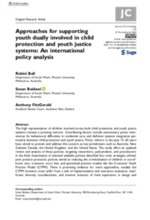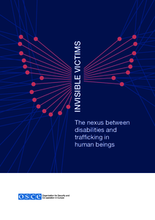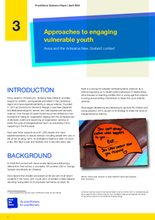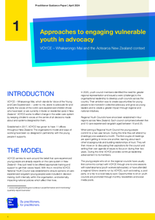Displaying 361 - 370 of 14551
Join Prof Kristen Cheney at the University of Victoria says that targeting ‘orphans’ for particular kinds of intervention commodifies orphans and can spur 'production' of 'orphans' resulting in exploitation. Learn more at this public lecture on April 9. RSVP to attend in person, or join online.
This Technical Note lays out ways in which national child protection systems can be enhanced to include children in the context of migration.
Martin Punaks discusses effective advocacy campaigning in this episode of Care Conversations.
Safety and risk assessments are critical to our understanding of what factors contribute to the immediate safety needs and the risk of future maltreatment.
This study offers an updated review and analysis of policy reforms across both the child protection and youth justice systems in jurisdictions such as Australia, New Zealand, Canada, the United Kingdom, and the United States, targeting researchers, policymakers, and practitioners in the field.
Three years since *Celina decided to apply be a foster parent of *Stella, she recounted the journey she took to integrate her into her family in 2021. It was a challenging period of adjustment as the then six-year-old struggled to fit into a family set-up after spending several years in a children’s home.
This short paper provides an overview of the existing links between disability and trafficking in human beings, how persons living with disability are affected by trafficking, and to what extent legal standards, policy frameworks, and anti-trafficking measures integrate concerns associated with disabilities.
This practitioner guidance paper outlines the work of the Pillars Ka Pou Whakahou -- a charity based in New Zealand that provides support for the children and families of those in prison by providing wraparound support for these families, with home-based social work and a youth mentoring programme.
This practitioner guide outlines the Aviva program in Christchurch, Aotearoa New Zealand that provides support to children, young people and adults who have experienced family or sexual violenc
This practitioner guidance paper details the work of the VOYCE – Whakarongo Mai centres in New Zealand which centres its work around the belief that care-experienced young people are already experts on the care system – they just need to be offered appropriate training and support to get their voices heard.






